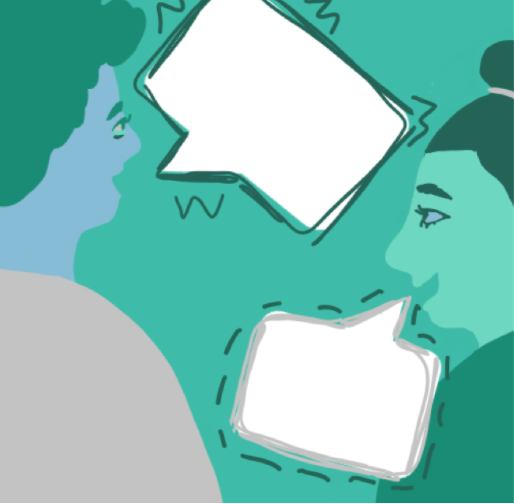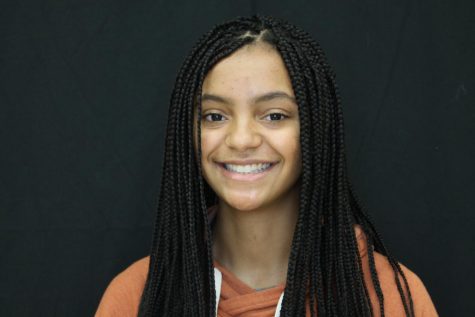The importance of discussing controversial topics: A teacher’s perspective

Photo by Ava Bartels
Discussing controversial topics in the classroom is very important in the development of student’s communication skills. Teachers play a crucial role as the facilitators of these conversations.
How do we have conversations regarding more controversial topics in the classroom? It can be difficult at times, however many would argue that addressing these kinds of topics is unavoidable. The purpose of the public education system is to prepare us for whatever life has in store next. Having difficult conversations with people that may have differing opinions from us is most certainly a part of that. For teachers, this means being able to facilitate these kinds of conversations while maintaining a safe and respectful classroom environment. Mr. Rippe, a social studies teacher here at East, describes the role that teachers have in addressing these kinds of issues.
“It’s important that as a teacher, we help students focus on these controversial issues and teach them the kinds of skills that it takes to analyze a controversial issue,” Mr. Rippe said.
So what are the skills that we as young people develop when discussing controversial topics in the classroom? Knowing how to respectfully converse with other people who may have a completely different opinion on an issue is a skill that I think many people, even adults, struggle with. Starting to have these conversations now and developing these communication skills early on, will only be to our benefit in the long run. Mrs. Funk, an English teacher at East, elaborates on the specific kinds of skills that having these difficult conversations develops.
“It builds empathy, it makes you a more well rounded individual, and it makes you able to step outside of yourself and to think critically,” Mrs. Funk said.
Obviously with friends, family, and over social media, we can discuss these kinds of controversial issues, but it is also important to be an active member of the discussion in the classroom. As humans we tend to only try and seek out information and converse with people who hold similar views and ideologies as ourselves. In every classroom you are going to see a wide array of beliefs and opinions among the students. Having these classroom conversations allows for students to hear from various perspectives and gain a deeper, more knowledgeable understanding on a topic or issue.
“We don’t want an echo chamber,” Mr. Rippe said. “We want this chamber of, like I said, civil discourse where all views are brought to the open and discussed.”
As we continue progressing in our academic careers and move on to college and eventually enter the workforce, we will have to converse and work with many different people from all walks of life. The whole purpose of our public education system is to make us prepared and well-equipped to handle whatever endeavors we choose to take on next.
“No matter where you go and work, or wherever you end up in life, you’re going to encounter hard conversations,” Mrs. Funk said. “Having that preparation and that training in your education already, it just makes sense.”
Teachers play a key role in this process as the facilitators of classroom conversations, who also actively try to maintain a safe learning environment that will promote growth among all the students.

Hi, my name is Kamryn Snyder and I am a senior at East High. I am so excited to be a part of the Oracle staff this year as the editor-in-chief! Here at...

Hi, my name’s Ava Bartels, I’m a senior, and this is my second year on The Oracle. In my free time, I enjoy drawing and sketching people, biking, and...

